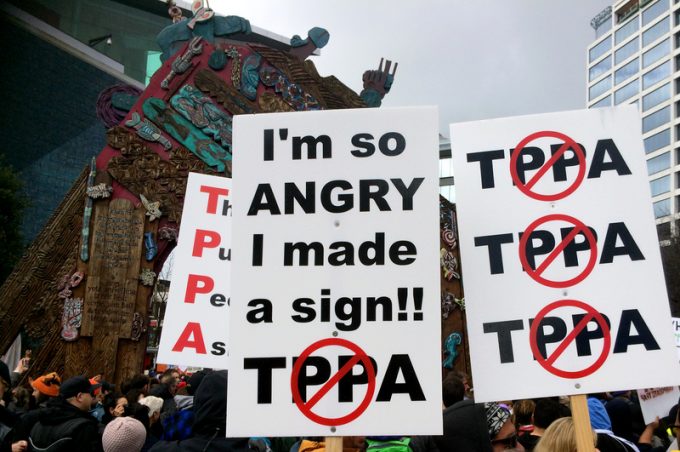NfD: The wound that never heals: Lacan meets Trump
Taken from notesfromdisgraceland: There is an essential difference between natural laws and those governing social contexts ...

President Trump has torn up the Trans-Pacific Partnership (TPP) as per his campaign pledge. The mammoth trade deal – which would have slashed tariffs among 12 nations – was beset by problems from its start.
Democratic politician Bernie Sanders described it as a “failed free-trade policy… one that had already cost millions of jobs and shuttered thousands of US factories”. However, The Atlantic reports the deal had enjoyed some popularity – notably among the Republican party leadership, although that was not shared by Mr Trump.
“Not only will the TPP undermine our economy but it will undermine our independence,” he said last year, and he described yesterday’s move as a “great thing for the American worker”.
However, The Atlantic notes that tearing up an agreement whose members comprise approximately 40% of the global economy would create an opportunity for China and allow it to exert further influence on the Pacific Rim. One-time Republican nominee John McCain describes the withdrawal as a “serious mistake”.
The article further suggests that had TPP passed, US middle-class workers may have become more appealing on the back of stringent labour and environmental laws driving overseas costs up.
The rise and rise of China's ecommerce platforms
Legal battle heats up over 'unseaworthy' and 'reckless' MV Dali
DSV chief reticent on Schenker: the focus on growing market share
Increasing scrutiny could stall rise of ecommerce platforms, as TikTok faces US ban
MSC redeploys 'Israel-linked' box ships away from Persian Gulf
Boxes piling into Mexican ports – but then piling up
Liners add capacity to Asia-ECSA as ocean rates hit 18-month high
K+N looks past Q1 revenue drop to improved margins from restructure

Comment on this article